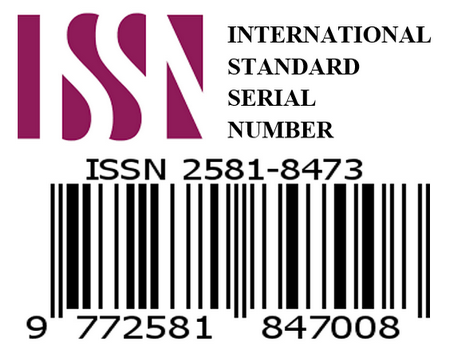Assigning Editor
The Managing Editor will assign an Editor to the manuscript based on a submission’s subject area, Editor has to make an Accept/Reject decision with proper comments and inform to The Managing Editor within the time limit.
Reviewer
The Assigned Reviewer has to review manuscripts as per their field, after all observation has to give necessary comments and marks as per our Review Form and send back to The Managing Editor within time limit.
Review
The Editor first evaluates all manuscripts. It is rare but entirely feasible for an exceptional manuscript to be accepted at this stage. Those rejected at this stage are insufficiently original, have serious scientific flaws, have poor grammar or English language, or are outside the aims and scope of the journal. Should the Editor decide to not assign reviewers but instead reject the submission, he/she is required to provide comments to be returned to the author.
Those that meet the minimum criteria are passed on to preferable 3 but at least 2 experts for review. Suggestions for referees from the author are welcome, though these recommendations may or may not be used. Editors will solicit reviewers with the title and an abstract of the submission and, if accepted, send reviewers the submission via email. Editors should guide referees with Reviewer Guidelines. Referees directly return their reviews to the Editor by email. Unless the Editor makes specific arrangements with a reviewer, the deadline to return a completed review is 10 days.
Making Decision
Referees advise the Editor, who is responsible for making the final decision to accept or reject the article? The Editor will determine the disposition of the manuscript, based on remarks of the reviewers, and the Editor’s own assessment of the manuscript. The Editor must then promptly convey this decision to the author. The author may contact the Editor if instructions regarding amendments to the manuscript are unclear. The Editor should be sure to never disclose the names of reviewers to authors.
THE OBJECTIVES OF THE PEER REVIEW PROCESS INCLUDE:
- To assess the quality of the paper before publication. This review decides whether a paper is fit for publication or not.
- To provide expert assessment of the quality and soundness of the submission under review.
- To provide guidance to the editorial decision-maker in making an informed, fair, and objective decision on whether to accept, accept subject to changes, or reject.
- To provide guidance to authors on improvements to their submission.
Importance of Peer Reviewing:
Peer review is an essential part of formal scholarly communication, and lies at the heart of the scientific method. Peer review assists the editor in making editorial decisions and through the editorial communications with the author may also assist the author in improving the paper. Peer Reviewers need to recognize the importance of their role and commit to contributing high quality work to the process of publishing scholarly research.
Promptness:
Any selected referee who feels unqualified to review the research reported in a paper, or knows that its prompt review will be impossible should notify the editor and excuse themselves from the review process. If a selected referee agrees to review a paper, they should then adhere to timelines set by the editor.
Confidentiality:
Any papers received for review must be treated as confidential documents. They must not be shown to or discussed with others except as authorized by the editor.
Standards of Objectivity:
Reviews should be conducted objectively. Personal criticism of the author is inappropriate. Referees should express their views clearly with supporting arguments.
Study Ethics:
Reviewers are encouraged to comment on ethical questions and possible research misconduct raised by submissions (e.g. unethical research design, insufficient detail on patient consent or protection of research subjects, including animals).
Acknowledgement of Sources:
Reviewers are encouraged to be alert to redundant publication and plagiarism. Reviewers should identify relevant published work that has not been cited by the authors. Any statement that an observation, derivation, or argument had been previously reported should be accompanied by the relevant citation. A reviewer should also call to the editor’s attention any substantial similarity or overlap between the manuscript under consideration and any other published paper of which they have personal knowledge.
Disclosure and Conflicts of Interest:
Unpublished materials disclosed in a submitted manuscript must not be used in a reviewer’s own research without the express written consent of the author. Privileged information or ideas obtained through peer review must be kept confidential and not used for personal advantage. Reviewers should not consider manuscripts in which they have conflicts of interest resulting from competitive, collaborative, or other relationships or connections with any of the authors, companies, or institutions connected to the papers.




